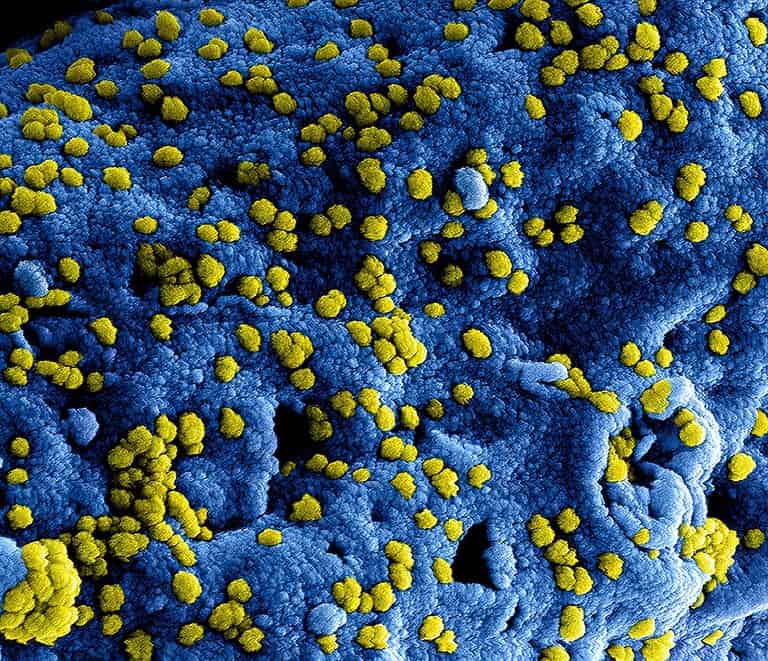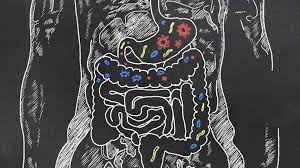How to Eat for Your Microbiome: A Family Guide
Knowing how to eat for your microbiome is indispensable for attaining and sustaining ideal health. The gut microbiome, an intricate assemblage of microorganisms in our digestive tracts, is essential for human health. Our food choices can significantly impact the diversity and function of these gut bacteria.
In this post, we’ll look into the importance of having a varied gut microbiome and investigate what affects its makeup. We’ll discuss plant-based diets rich in soluble fiber and nuts as essential for promoting intestinal health. Additionally, we’ll examine fermented foods as sources of probiotics that contribute to a healthy microbiome.
Furthermore, you’ll learn about flavonoids and polyphenols’ influence on gut health through their effects on specific bacterial populations. Lastly, we will address how to establish a healthy gut microbiome in children by emphasizing breastfeeding’s importance and incorporating whole grains into their diet.
By learning how to eat for your microbiome, you can take control over your family’s overall wellness while fostering independence when it comes to making informed dietary decisions.
Table of Contents
- The Importance of a Diverse Gut Microbiome
- Plant-Based Foods for a Healthy Microbiome
- Fermented Foods for Probiotic Benefits
- Flavonoids & Polyphenols Influence on Gut Health
- Establishing a Healthy Gut Microbiome in Children
- FAQs in Relation to How to Eat for Your Microbiome
- Conclusion
The Importance of a Diverse Gut Microbiome
A diverse and healthy gut microbiome plays a crucial role in overall health, producing essential enzymes, hormones, vitamins, and other metabolites. Research shows that diet, environment, and lifestyle behaviors have more significant impacts on shaping the gut microbiome than genetics.
Role of Gut Microbes in Maintaining Overall Health
Gut microbes are responsible for many vital functions within our bodies. Gut microbes facilitate digestion by breaking down complex carbohydrates into simpler sugars that can be taken up by our cells.
Additionally, they produce short-chain fatty acids (SCFAs) like butyrate, which helps maintain intestinal barrier integrity and reduce inflammation. These tiny organisms also synthesize essential vitamins such as vitamin K and B12.
Factors Influencing the Composition of the Gut Microbiome
- Diet: The types of food we consume play a major role in determining our gut microbial composition. Diets rich in fiber from fruits, vegetables, whole grains, legumes, beans, and nuts encourage diversity among bacterial populations, whereas high-fat, low-fiber diets tend to decrease it.
- Environment: Exposure to different environments may influence microbial diversity due to contact with various bacteria present in the surroundings.
- Lifestyle Behaviors: Factors such as stress, sleep quality, exercise habits, and medication use can all impact the gut microbiome. For example, chronic stress has been shown to reduce bacterial diversity, while regular physical activity may increase it.
Plant-Based Foods for a Healthy Microbiome
Consuming an array of vegetables, legumes, beans, and fruits, along with herbs and spices rich in soluble fiber, helps support intestinal health by preventing inflammation. Incorporating nuts like almonds or pistachios can also enhance intestinal well-being.
Benefits of consuming soluble fiber-rich foods
Soluble fiber is a key element in sustaining a robust intestinal microflora, as it serves as nourishment for advantageous bacteria. SCFAs produced by the fermentation of soluble fiber help reduce inflammation and support digestive health. Some excellent sources of soluble fiber include oats, barley, apples, oranges, and psyllium husk.
The role of nuts in promoting intestinal health
Nuts are not only a great source of protein but also contain prebiotic fibers that help nourish the good bacteria residing within our guts. Almonds and pistachios have been shown to promote the growth of bifidobacteria – one type among many other beneficial bacterial species found within human intestines.
Fermented Foods for Probiotic Benefits
Incorporating fermented foods into your diet can provide numerous health benefits, particularly in regard to supporting the gut microbiome and its associated microbial ecosystem. These probiotic-rich products not only improve immune function but also increase diversity within the gut microbial ecosystem.
Types of Fermented Food Sources
There are numerous options available when it comes to incorporating fermented foods into your meals. Some popular choices include:
- Yogurt (preferably plain or unsweetened)
- Kimchi
- Sauerkraut
- Kombucha
- Kefir
Impact on Specific Bacterial Populations
It is important to know how to eat for your microbiome. Studies have found that regular intake of yogurt and kefir can lead to an increase in beneficial bacteria, such as Bifidobacteria and Lactobacilli while reducing the prevalence of harmful Clostridia species. This shift in bacterial populations can have a significant impact on host well-being by improving specific functions associated with digestion and immune health.
Flavonoids & Polyphenols Influence on Gut Health
The potential of flavonoids and polyphenols to alter the composition and activity of our gut microbiome is an exciting field of study with implications for personalized nutrition approaches. By understanding how these bioactive compounds interact with our intestinal bacteria, we can potentially develop personalized nutrition strategies to promote optimal health.
Effects of Cocoa Polyphenols on Gut Bacteria
Cocoa is rich in polyphenolic compounds, particularly catechins and procyanidins. These antioxidants have been associated with numerous potential health advantages, including decreased inflammation and better heart function.
Recent research has also shown that cocoa polyphenols can positively affect bacterial populations within the gut by promoting the growth of beneficial microbes like Lactobacillus spp. and Bifidobacterium. While inhibiting pathogenic bacteria such as Clostridia.
- Lactobacillus: Known for its ability to produce lactic acid, which helps maintain a healthy pH balance in the intestine while preventing harmful pathogens from colonizing.
- Bifidobacterium: Plays a crucial role in breaking down complex carbohydrates into short-chain fatty acids (SCFAs), providing energy for colonic cells and supporting overall digestive health.
- Clostridia: A group of anaerobic bacteria often associated with gastrointestinal disorders due to their toxin-producing capabilities when present at high levels within the intestine.
Influence of Tea Flavonoids on the Gut Microbiome
Tea, particularly green tea, is abundant in flavonoids – bioactive compounds known for their potential to reduce the risk of cardiovascular disease and cancer. Research has indicated that flavonoids in tea, especially green tea, may reduce the risk of certain diseases such as cancer and cardiovascular disease.
Establishing a Healthy Gut Microbiome in Children
For families with young children, it’s essential to know how to eat for your microbiome and recognize that exposure to beneficial bacteria begins even before birth. Introducing whole grains into a kid’s diet and breastfeeding is key to setting up an infant for improved long-term health by forming a healthy gut microbiome.
Importance of Breastfeeding for Developing Gut Microbiota
Breast milk is an excellent source of nutrients and bioactive compounds that play a crucial role in the development of an infant’s gut microbiota. It contains various prebiotics, such as oligosaccharides, which promote the growth of beneficial gut bacteria like Bifidobacteria and Lactobacilli.
These microbes are essential for maintaining intestinal integrity, enhancing immune function, and protecting against harmful pathogens. By breastfeeding your baby exclusively during the first six months, you provide them with optimal conditions to develop a diverse and healthy gut flora.
FAQs in Relation to How to Eat for Your Microbiome
What should I eat to reset my microbiome?
Knowing how to eat for your microbiome is essential. Consuming a diet abundant in prebiotic and probiotic-rich fare is the optimal way to restore your microbiome. Non-digestible fibers that nourish beneficial bacteria and live microorganisms found in fermented foods such as yogurt, kefir, sauerkraut, and kimchi can help reset the microbiome when consumed in a diet rich with these items.
Consuming an array of plant-based foods, such as fruits, vegetables, nuts, and seeds, can supply essential vitamins and minerals to maintain gut health. Additionally, reducing sugar intake helps reduce inflammation which can further support the microbial balance within the body.
What are three things you can do to improve your gut microbiome?
- Consume a range of prebiotic and probiotic-rich edibles to promote beneficial bacteria growth in the gut and maintain an optimal microbiome balance.
- Regular physical activity has been linked to an increase in healthy bacteria populations within the gut, which helps maintain overall health and wellness.
- Stress is known to have a negative impact on the microbiome, so it’s important to find ways to manage stress levels through activities such as yoga or meditation for better gut health.
Conclusion
Knowing how to eat for your microbiome is an important part of maintaining a healthy lifestyle. Strategies to nurture gut health, such as prebiotics and probiotics, may be beneficial in preserving equilibrium and nourishment.
Supplements are also available that may help support overall gut health when taken regularly. By taking these steps towards eating for your microbiome, you will be able to maintain optimal physical wellness throughout all stages of life.
Discover how to nourish your microbiome and optimize your health with Smart Living Now. Our no-nonsense resources provide practical solutions for modern families seeking a healthier, more independent lifestyle.









